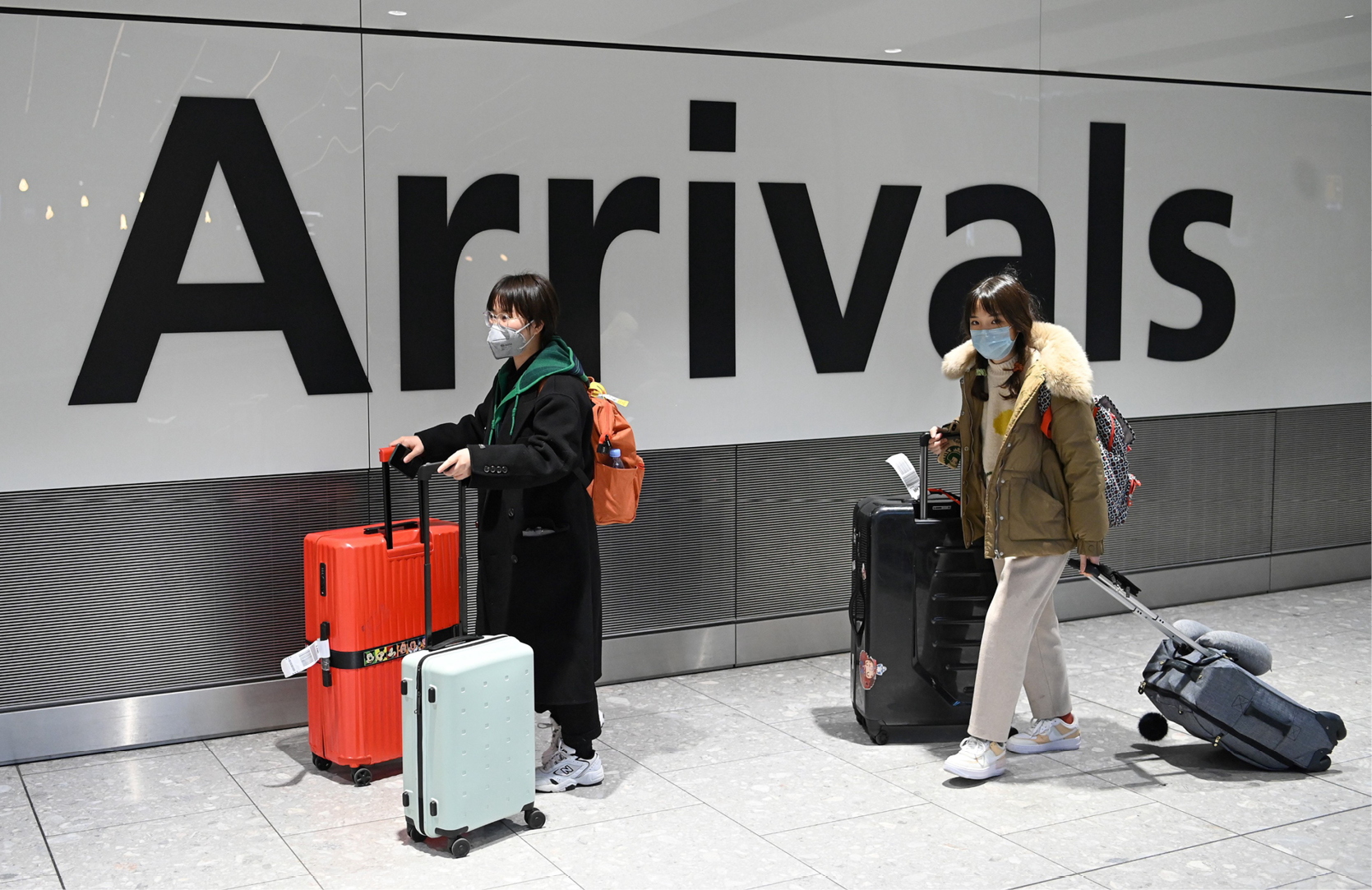The Travel Bug

Americans love to travel. How great is that love? The truth is, given how we drive, fly, and cruise the world you’d think travel was included in the certain “unalienable rights” referenced in the Declaration of Independence. We spend nearly $800 billion annually traveling hither and yon, domestically and internationally, trying to satisfy our wanderlust.
Experiencing fresh territory, whether it’s at the Grand Canyon or Mount Kilimanjaro, is exhilarating, providing a miraculous renewal of a human spirit often, at least partially, paralyzed by the humdrum of everyday life.
To prepare, travel brochures are collected and carefully read, travel websites repeatedly visited.
Daydreaming about what attractions will be seen, what exotic foods eaten, what new language and music heard – it’s all part of the joy that comes with planning to break away from the norm.
In so many ways, people want to know everything that can help make their trip wonderfully memorable. What phrases in Spanish can quickly help get a bourbon on the rocks or a gin and tonic? How do you say “Which way to the bathroom?” in French. Unfortunately, that kind of everything, planning born out of the divorced-from-reality belief that the practical only subtracts from the romantic, can make trips memorable for all the wrong reasons.
 How romantic is dysentery? Malaria? Polio? Without planning for this kind of potential health reality, without taking precautions against sickness and health-related possible problems in foreign lands prior to a trip, the planned vacation of your dreams could well become a nightmare, explains UNLV School of Medicine’s Dr. David Di John.
How romantic is dysentery? Malaria? Polio? Without planning for this kind of potential health reality, without taking precautions against sickness and health-related possible problems in foreign lands prior to a trip, the planned vacation of your dreams could well become a nightmare, explains UNLV School of Medicine’s Dr. David Di John.
Is getting your healthcare situation in order before a trip practical? Without a doubt. Is it necessary? You bet. Good health is our greatest wealth, reminds Di John, an infectious disease specialist, and without it, during a vacation you may end up starring in your own reality horror show full of fever and chills – or something far worse. It’s difficult to be romantic while guzzling Pepto-Bismol or unconscious on a gurney.
If you have a bum ticker, does the hotel where you plan on staying have a doctor or nurse on call? Is a defibrillator readily available? Does your medical insurance cover medical bills if you’re hospitalized overseas? Does it offer medical evacuation coverage? Unless going broke is on your bucket list, you should check with your health insurance company to see what is covered before you leave – often travelers leaving the country need to purchase travel insurance plans that cover both emergency medical expenses and medical evacuation.
“Preparation for a trip can make the difference between a good time and heartache – you should see a doctor four to six weeks before you go,” says Di John, a George Washington University Medical School graduate who not only studied tropical diseases at the Walter Reed Army Institute for Research in the nation’s capital, but also completed a fellowship in pediatric infectious diseases at the University of Maryland School of Medicine Center for Vaccine Development. “Making a complete itinerary of your trip to give to the doctor is one of the most important things you can do.”
“If you’re going on a beach trip to Peru, a doctor may well prepare you to handle sandflies,” Di John says, which he notes is far different than the mosquito preparation you’d receive if you were about to travel to that country’s portion of the Amazon rainforest, or the altitude medical preparation you’d be given before hiking the South American nation’s majestic mountains.
Di John points out that the federal Centers for Disease Control and Prevention (CDC) website, https://wwwnc.cdc.gov/travel/page/before-travel, is an excellent starting point for someone planning to visit foreign countries, particularly regarding vaccines that protect travelers from getting diseases in specific areas. The CDC divides vaccines for travel into three sections – routine, required, and recommended. Routine vaccines are recommended for everyone in the U.S. based on their age, health condition, and other risk factors. A required vaccine is one a traveler must have in order to enter a country – for instance, a yellow fever vaccination is required for entrance into Angola. Recommended vaccines are those the CDC suggests travelers get for protection. A typhoid vaccination, for example, can prevent a dangerous disease spread by contaminated food and water, something not usually found in the U.S.
Both Di John and Dr. Ryan Frome, a UNLV resident physician who works closely with Di John, say relying totally on the CDC travel website for medical travel information is insufficient.
“CDC websites provide recommendations, but CDC cannot give you specific medical advice,” Di John says. Recommendations for vaccines and medicines depend on many factors that are specific to each person, including age, health, and itinerary. Your primary care physician, he notes, can make sure you are up to date with all of your routine vaccinations, including measles-mumps-rubella (MMR) and a seasonal flu vaccine. If traveling to Asia, it’s possible that you may need an adult booster dose of polio vaccine even though you completed a routine polio vaccine series as a child – several Asian countries are currently experiencing polio outbreaks. “More than half of tetanus cases are in people over 65, so they should consider a tetanus booster before they travel,” Frome adds.
There are times, of course, that the CDC gives specific guidance to travelers, including currently telling travelers to forego all non-essential travel to the People’s Republic of China, where the novel coronavirus, without a vaccination to prevent it, has sickened and killed thousands. The U.S. Department of State has issued a “Level 4 Travel Advisory” asking people not to travel to China during the outbreak.
If you go to your primary physician prior to traveling, keep in mind that he/she generally does not have vaccines available for all diseases – the expense of having them on hand would be far too high. So would-be travelers have to visit a travel medicine clinic at least a month ahead of time for vaccines the physician recommends. The public Southern Nevada Health District handles many of the travel vaccinations, providing vaccines for cholera, rabies, typhoid, and yellow fever, but it also warns it does not offer consultation with a licensed physician, nor does it provide prescriptions for medication you may need while traveling or provide yellow fever exemption letters for travelers who cannot receive the yellow fever vaccine. It also does not do blood work to determine immunity against disease, offer Japanese Encephalitis or oral typhoid vaccines, and does not provide the malaria prophylaxis and prescriptions needed for trips to developing countries. Private travel medicine clinics in Las Vegas, easily found on the internet, fill that void. They provide a travel doctor who will not only let you know what travel vaccines are advised for your specific itinerary, but will also write all prescriptions needed as well as go over food, water, and all safety issues. Specific medication for children can also be provided.
The CDC recommends travelers pack a travel health kit that has first aid supplies and enough prescription medicine for the whole trip, plus a little extra just in case. Insect repellent with an active ingredient like DEET or picaridin should be on hand. Ditto for over-the-counter medicines. An entire health kit checklist can be found at https://wwwnc.cdc.gov/travel/page/pack-smart.
The U.S. Department of State also suggests people engage in the Smart Traveler Enrollment Program (STEP), a free service allowing citizens and nationals traveling abroad to record information about a trip so that an American consulate can reach you in case of danger, medically or otherwise, in the destination country, as well as about emergency situations involving your family at home
Di John and Frome offer some easy-to-remember tips they say can make a positive difference on a foreign trip for preventing nausea, travelers’ diarrhea, and a number of diseases: Eat only food that has been fully cooked and served hot; do not eat fresh vegetables or fruits unless you can wash or peel them yourself; drink only bottled, sealed beverages, and avoid ice – in most developing countries, tap water should not be drunk, even in cities, because of contamination; if you choose to eat street food, apply the same rules as to other food – if you watch something come straight off the grill cooked and steaming hot, it’s more likely to be safe; avoid bushmeat, which refers to local wild game such as bats, monkeys, or rodents – it can be a source of serious animal-origin diseases such as Ebola or SARS.
After all is said and done, Di John says practical planning for safe and healthy travel is the best way to ensure a positive travel experience.
“I can’t say enough how important preparation is to a successful trip,” he says. “Why gamble with your health when there are vaccinations and medications available? The better you feel, the better time you’ll have.”
